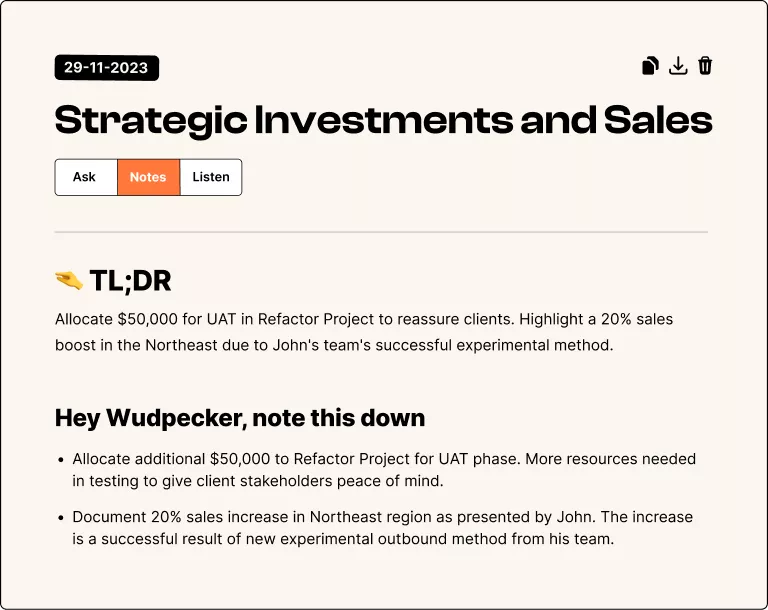Zero to One by Peter Thiel, co-founder of PayPal, is a blueprint for creating revolutionary companies. Rather than competing in crowded markets, Thiel argues that startups should aim to create something entirely new—an idea or product that shifts the industry from “zero” to “one.” This book provides valuable insights on what it takes to build companies that are truly transformative and how to avoid getting caught in the cycle of competition.
At the heart of Zero to One is the idea that the most successful companies are those that generate unique value by innovating in a way others haven't. Thiel emphasizes that monopolies, rather than competition, drive true innovation. For anyone looking to make an impact in the startup world or build a product that stands out, Zero to One offers essential guidance.
The Core Concepts of Zero to One
Thiel’s perspective is rooted in the belief that we need to rethink the way we approach business and innovation. Here are some core concepts he outlines in Zero to One:
(1) The Importance of Monopolies
Thiel argues that the best businesses are monopolies rather than competing in saturated markets. He explains that monopolies are essential for long-term innovation and profitability, as they can generate sustainable value without the pressure to constantly cut costs or prices.
(2) Building from Zero to One
The book’s title reflects Thiel’s central argument: businesses should strive to go from zero (creating something entirely new) to one (creating a market-defining product), rather than from one to many (competing in existing markets). Thiel encourages entrepreneurs to innovate with unique solutions rather than copy existing products.
(3) Secrets and Contrarian Thinking
Thiel believes that some of the most groundbreaking innovations come from discovering secrets—insights that are not widely recognized or acknowledged. Entrepreneurs should be willing to embrace contrarian thinking, challenging established assumptions to uncover new ideas and opportunities.
(4) The Power of Vertical Progress
Vertical progress involves creating entirely new products, markets, or technologies rather than incrementally improving existing ones. Thiel encourages entrepreneurs to pursue vertical progress, which he believes is the key to building transformative companies that lead the market.
(5) The Importance of a Strong Foundation
Thiel stresses the need to establish a solid foundation early on. This includes assembling a strong team, securing the necessary funding, and defining a clear mission. Building a business with a strong foundation allows it to withstand challenges and stay focused on its long-term goals.
(6) Network Effects and Scalability
Thiel discusses the importance of network effects—where the value of a product or service increases as more people use it. Network effects are crucial for scaling a business, as they create momentum that drives growth and strengthens the company’s position in the market.
Essential Strategies for Building a Zero to One Company
Thiel’s insights aren’t just theoretical; they’re actionable steps that anyone building a startup or innovative product can implement. Here’s how to apply the lessons from Zero to One to create value in the market:
(1) Identify Your Unique Value Proposition
Instead of competing on price or minor features, identify a way your product can be completely unique. Aim to provide a benefit that no other product on the market can match. This uniqueness sets you apart and allows you to create a monopoly in your niche.
(2) Embrace Contrarian Thinking
Challenge commonly held beliefs about what’s possible in your industry. Seek out secrets or unacknowledged insights that others may have overlooked. By embracing a contrarian mindset, you’ll be more likely to uncover opportunities that can set your product apart from the competition.
(3) Start Small and Aim for Market Dominance
Instead of trying to tackle a large market immediately, focus on a smaller, niche market where you can establish a strong presence. Once you’ve achieved dominance in this space, you can gradually expand your reach. This approach allows you to build momentum and gain a competitive edge.
(4) Invest in a Strong Team
Thiel emphasizes the importance of having a committed team aligned with the company’s mission. Invest time in selecting co-founders, early employees, and partners who share your vision and bring complementary skills to the table. A strong team can help you overcome challenges and ensure long-term success.
(5) Focus on Technology that Scales
Think about how your product or technology can scale over time. Products that incorporate network effects and scalability are better positioned to grow rapidly, making them more attractive to investors and users alike. Design your product with the future in mind, ensuring it can handle increased demand as it gains traction.
(6) Maintain a Long-Term Vision
Successful companies, Thiel argues, are those that stay focused on long-term goals rather than short-term gains. Avoid the temptation to pursue quick wins or rapid expansions. Instead, stay committed to your mission, and make decisions that align with your vision for the future.
Why Zero to One Matters for Entrepreneurs Today
Zero to One is a must-read for entrepreneurs because it emphasizes the value of originality and creativity in business. Thiel’s focus on monopolistic, high-impact innovations is particularly relevant in today’s saturated markets, where many companies are competing on similar products. By focusing on creating something truly unique, you’re more likely to build a product that stands out, provides value, and captures a significant portion of the market.
The book also underscores the importance of resilience and perseverance. Thiel’s guidance on building a strong foundation, embracing challenges, and staying committed to your vision offers valuable advice for anyone seeking to create a sustainable and impactful business.
Conclusion
Zero to One by Peter Thiel is a powerful guide for anyone looking to build a transformative business. By focusing on monopolies, contrarian thinking, and long-term vision, entrepreneurs can create products that redefine industries and stand the test of time. Thiel’s advice encourages innovators to look beyond existing markets and strive for true originality—turning zero into one.
For product managers and entrepreneurs, embracing the principles in Zero to One can lead to sustainable growth, a strong market presence, and the ability to make a lasting impact. And when you're ready to put these principles into practice, tools like Wudpecker can help streamline your research, ensuring you stay focused on delivering unique value.



.svg)















.png)




.svg)
